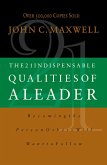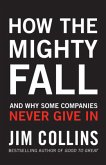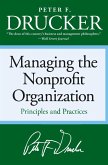Keys to Running Successful Research Projects: All the Things They Never Teach You provides a step-by-step guide for the management of a successful research project or program. Through the use of illustrative case studies, the book covers all aspects of management that should be included during researcher training, helping researchers overcome the many challenges they face in their day-to-day management of people, time and resources. Links throughout provide more detailed information from gold standard sources on every topic. It is a must-have reference for postdocs, research managers and administrators in colleges, universities, hospitals and research institutes.
In addition, it is an ideal resource for those working in grant and contract funding groups in the life sciences and medical fields.
Hinweis: Dieser Artikel kann nur an eine deutsche Lieferadresse ausgeliefert werden.
In addition, it is an ideal resource for those working in grant and contract funding groups in the life sciences and medical fields.
Hinweis: Dieser Artikel kann nur an eine deutsche Lieferadresse ausgeliefert werden.








